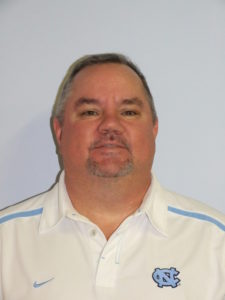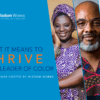 Over the years I’ve done hundreds of interviews with leaders worldwide about why and how they make wellbeing central to their lives and relationships, and their organizations and communities. Each conversation has been inspiring. For me, their stories reveal a profound redefinition of leadership underway, one where the focus of leading shifts from one to everyone, from managing resources to uplifting people and whole systems, from surface improvements to deeper transformative change, from scarcity to abundance. (But more on this leadership transformation in my upcoming blog!)
Over the years I’ve done hundreds of interviews with leaders worldwide about why and how they make wellbeing central to their lives and relationships, and their organizations and communities. Each conversation has been inspiring. For me, their stories reveal a profound redefinition of leadership underway, one where the focus of leading shifts from one to everyone, from managing resources to uplifting people and whole systems, from surface improvements to deeper transformative change, from scarcity to abundance. (But more on this leadership transformation in my upcoming blog!)
My recent interview with Richard Oliver cemented my faith in this shift and the growth it can produce. As President of THORLO – a former sock company with the mission today to be “Caretakers of the World’s Feet” – Richard shared the organization’s journey to become healthier and more sustainable. I am profoundly grateful for his willingness to dive into the often-ignored questions about leading a contemporary organization with greater consciousness; I share his story with you as part of Wisdom Works Face of Wellbeing Leadership series.
Me: Is the planet ready for a fundamentally different way of leading?
Richard: Absolutely. To understand why I say yes, let’s go back to the Industrial Revolution. That period of time created a huge shift in how we structured organizations and business approaches, as well as how we achieved results on a global scale. Everything was designed around the control of efficiency, productivity, and reliability. This changed our relationships to work and each other enormously. Although we may say the Industrial Revolution produced ways of thinking and operating that are not sustainable today, it was certainly a dramatic shift from where we were before.
Now we’re going through that next big revolution. Companies like SAS, Zappos, Google, THORLO, and others are already striving to embrace it. We’re on the eve of big change in how people come together to achieve common purposes and do work; on this new path, the value of wellbeing is essential. I don’t think it’s a coincidence this shift is happening as the next big bubble of population – the Millennials – come into the workforce globally. They’re demanding work environments conducive to making an authentic and personal contribution.
Me: What is the essence of this big shift?
Richard: At THORLO the center point is what we call Whole Relational Wellness. Whole Relational Wellness means tending to your relationship with yourself first – your self-awareness and why you do what you do – as well as your relationships with others and your local community. Even your relationships to the planet.
I’m noticing this type of perspective growing in business circles. Why? Because whole relational wellness helps your business become more sustainable. Take our company, for instance. Today we make products for foot health. Tomorrow we could make something completely different. As market opportunities change, the work we’ve done to build flourishing relationships with ourselves and with each other is a framework of trust and support from which we can effectively pivot in what we do and how we provide value. Sustainable Community is key.
Me: Did THORLO begin with Whole Relational Wellness as its core?
Richard: Not at all. In fact, we still get criticized for how we operate. People ask, “Are you guys really running a company or are you running a not-for-profit experiment?” From the outside looking in, I can see how people would say that, so maybe a little history is in order.
The first generation of THORLO did contract knitting of socks in the 50’s, 60’s, and 70’s. The second generation, led by Jim Throneburg, truly invented our brand, along with a vision to foster a living, self-regenerating, relationship-based culture. But we weren’t sure how to do it. I was hired to the company 24 years ago; helping us bring this culture to life by transforming our business to a relationship focus has been my primary passion.
Let me give you an example of how this works for an individual member of THORLO. We believe personal wellness is much bigger than diet or physical wellbeing. It’s about your relationship with these dimensions and more. The first step is: How do you relate to your authentic self? To family? To friends? Our Whole Relational Wellness Wheel helps THORLO members explore different dimensions of their personal wellbeing, an exploration that only begins with self-awareness and self-responsibility.
As a company we cannot force people to adopt better wellness behaviors. But we can create an environment where the personal wellness journey – a life-giving relationship with one’s True Self – is supported.
We strive to host environments that work for the good of THORLO as a Sustainable Community and result in a workplace where people make the sustainability of relationships with themselves and others a priority. A deep understanding about relational dynamics at individual, group, and global levels is essential to how we run our business.
Me: What does this mean for relationships outside your organization?
Richard: Our higher vision is to realize sustainable value through making sustainable relationships real. The relationships we’re talking about aren’t only inside THORLO; they’re with our consumers, our community members, and all stakeholders and shareholders. Our aim is to operate from a place of win-win-win-win, trust, and abundance. It would not be sustainable for our company to do otherwise.
How does this show up in practice? If you sit and listen to conversations in our workplace, you’ll hear people not only talking about relationships with THORLO members internally but also about our consumers. Our bank. Our suppliers. Our community. And so on. You’ll hear us talk about how our business approaches are affecting them, positively and negatively, and what we need to change to stay true to our relationship commitments.
Me: How has your approach affected your business performance?
Richard: We started as a part-time, contract-based hosiery mill decades ago. Today we sell our products in approximately 40 countries globally, with all of our manufacturing done within a vibrant work culture based in North Carolina. And in the recent 18 months, we’ve experienced a renaissance of innovation in our business model and products, with greater growth on our horizon. For us, committing to healthy, sustainable relationships is central to business success long term.
Me: How might a leader begin making relationships as important as you have?
Richard: Some people may say, “Whole relational wellness is great if you’re a church or a nonprofit, but it will never work in business.” Yet there’s a certain group of businesspeople who are naturally attracted to leading this way. It’s part of their internal value system. For them, the first thing to do is this: Look in the mirror and, for every area of your life and leadership, ask yourself, “Who am I? Where am I manifesting the values of sustainable relationships, and where am I not?”
This is an exercise in candid self-awareness, a very different tool in a leader’s tool bag. Most leaders are taught to deal with organizational hierarchy, influence power structures, and win at others’ expense. The attention is on someone or something “out there” rather than an accountability born out of self-awareness and being personally 100% responsible. It doesn’t have to be that way. Leading where you win and others lose is a choice. At THORLO, we’re making a different choice; we choose relationships of abundance and wellbeing.
Want to learn more? For in-depth insights on THORLO, take a look at this excellent case study done by the Institute for Strategic Clarity along with this article in the Journal of Accountancy. To make wellbeing central to your business and workplace culture, give me a shout at renee@wisdom-works.com.
READ MORE
- Workplace Wellness: What Is Its Future?
- Men On Leading Wellbeing: 6 Quotes That Speak Loud & Clear
- Wellbeing Is Mission Critical: Insights from Johnson & Johnson CMO Dr. Fikry Isaac
- Innovation As Driver Of Wealth And Wellbeing? Insights from Zappos & Downtown Project Maggie Hsu
- Let’s Make 2015 the Year of the Ministry of Wellness






You can hear the THORLO story through the voices of its community members in a documentary titled “No Bosses” (https://www.youtube.com/watch?v=Jx8T2T1Hr90).
Thank you so much, Jim! This is an excellent video, and tells the THORLO story quite well.